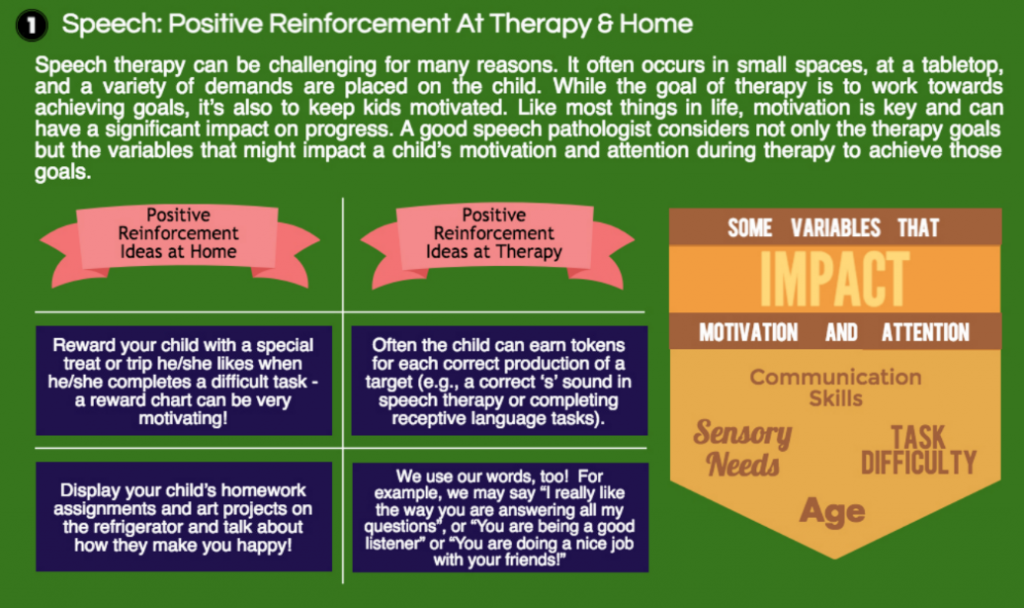Positive Reinforcement Ideas at Therapy & Home
Speech therapy can be challenging for a host of reasons. It often occurs in small spaces, at a tabletop, and a variety of demands are placed on the child. While the goal of therapy is to work towards achieving goals, it’s also to keep kids motivated. Like most things in life, motivation is key and can have a significant impact on progress. A good speech pathologist considers not only the therapy goals but the variables that might impact a child’s motivation and attention during therapy to achieve those goals.
Variables that Impact Motivation and Attention
A lot of variables come with the child’s age. Older children might be aware of their speech and language challenges and motivated to improve them. Conversely, they might feel self conscious and easily discouraged when therapy doesn’t come easy. For young children, in particular, it is often difficult for them to comprehend the goal of therapy and therefore, play-based tasks are essential in keeping them engaged and interested.
Attention is another important factor in performance and motivation in speech therapy. Children might struggle with a variety of attention difficulties including sensory needs, distractibility, impulsivity or other communication barriers such as poor comprehension that make therapy a struggle. A tangible token system may be helpful.
Positive Reinforcement at Therapy:
1. We might allow the child to select the next session’s activity from time to time if they follow the rules, are kind to one another, take turns, and complete all their tasks during a session.
2. Often the child can earn tokens for each correct production of a target (e.g., a correct ‘s’ sound in speech therapy or completing receptive language tasks).
3. We use our words, too! For example, we may say “I really like the way you are answering all my questions”, or “You are being a good listener” or “You are doing a nice job with your friends!”
4. Having the child be the “teacher” is a fun and interactive way for them to “teach” you (and a group) what he/she knows.
Positive Reinforcement Ideas at Home:
1. Reward your child with a special treat or trip he/she likes when he/she completes a difficult task – a reward chart can be very motivating!
2. Display your child’s homework assignments and art projects on the refrigerator and talk about how they make you happy!
3. Make your child’s favorite meal or read a favorite story to let him/her know how special he/she is to you, how you like his/her jokes, how you appreciate him/her getting along with a sibling, etc.
4. Give hugs, high fives, and verbal praise!
Contact Us
First Leap Offers a Free 30 Minute Consultation
Schedule your tour and consultation now!
Contact Us

